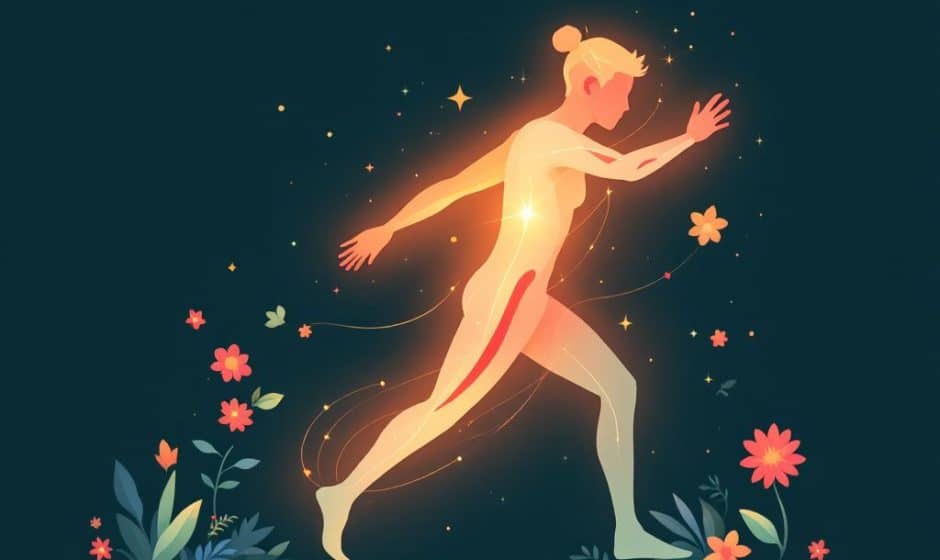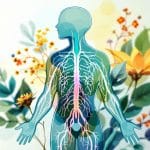Hey there! So, you’ve probably heard a ton about blood flow and circulation but ever wondered why it matters? Or how you can balance it better for that energy boost we all crave? Trust me, you’re not alone in this. This guide is all about understanding Blood Flow Balance and getting your circulation health up to speed, without the fluff but full of tangible, actionable bits. Sit tight and let’s dive into the world of flow boost!
Why Care About Blood Flow Balance?
Flow boost isn’t just some health buzzword. It’s the secret sauce to feeling vibrant, energetic, and in tune with your body. When your blood flow is out of whack, you may feel fatigued, slow, or just not yourself. Hormone regulation plays an enormous role here. Balanced hormones lead to balanced blood flow, which in turn leads to that ‘I feel incredible’ vibe. Curious yet? Let me show you how this all connects.
The Heart of the Matter: Blood’s Journey
What Exactly Is Blood Flow Balance?
Think of your blood flow balance as a finely tuned symphony. Every player—your heart, blood vessels, the hormones—needs to be in perfect sync. Effective circulation ensures every part of your body gets the nutrients—oxygen, minerals, and proteins—to function properly. Miss a beat, and you’ll start noticing issues like weakened immunity or sluggish energy levels.
Hormone Regulation’s Role
Hormones are like your body’s messengers. They navigate through your bloodstream, directing traffic—telling your body when to pump more blood, when to dial it back. If your hormone levels go rogue, they throw off this balance. Let’s blame stress hormones like cortisol—the pesky ones that can both stimulate too much blood flow or tighten your vessels, making it hard for blood to move freely. Not cool, right?

Achieving a Flow Boost: The Essentials
Start with the Basics: Healthy Lifestyle Choices
Let’s keep it real. Lifestyle plays a pivotal role. Think of healthy food, regular movement, and stress management as your MVPs in this game. Wondering how? Let’s chat about it.
- Eat Your Way to Better Flow: There are these magical elements in foods—let’s call them nutrients because they are—that help your blood flow. Omega-3 fatty acids in salmon, nuts, and seeds? Yep, they reduce inflammation and promote better circulation. Spinach and beets? Rich in nitric oxide, they help relax your blood vessels. Give them a shot.
- Get Moving: You don’t have to run marathons unless you’re into that! Even a 30-minute brisk walk can seriously boost circulation health. Movement gets the blood pumping and strengthens your heart, making it more efficient. It flushes out toxins that hitch a ride in your bloodstream too. Don’t you just love multi-tasking?
- Breathe and De-stress: Deep breathing isn’t just a yoga thing; it’s a life thing! Stress equals cortisol. Cortisol equals interrupted hormone regulation. Spend a few minutes a day breathing deeply or meditating. Your hormones will thank you for it.
Herbal Allies and Their Charm
Nature got our backs, big time. Here’s where herbal remedies come in. Ginger, turmeric, and ginkgo biloba are household names for a reason. They improve circulation and aid hormone balance naturally. Add a little ginger tea to your day or sprinkle turmeric into your meals. Small changes, big impacts.
| Herb | Benefits | How to Use |
|---|---|---|
| Ginger | Enhances circulation, boosts metabolism | Add to teas or smoothies |
| Turmeric | Anti-inflammatory, supports vascular health | Use in cooking or take as a supplement |
| Ginkgo Biloba | Improves blood flow to the brain and extremities | Capsules or teas |

Avoiding Common Pitfalls
Staying Away from the Circulation Killers
Avoiding certain habits can be as important as adopting new ones. Here’s what to keep an eye on:
- Stay Clear of Excessive Sugar: Overdosing on sweet treats? Time to reconsider. Sugar can spike your insulin levels leading to turbulent hormonal pathways, thereby affecting circulation.
- Skip The Nicotine: If you’re enjoying a cheeky puff now and then, remember nicotine narrows your blood vessels. Tighter vessels, lesser flow.
- Mind the Way You Sit: Slouching at your desk all day? Bad posture can compress vital pathways affecting circulation. Set a reminder to move or stretch!
From Theory to Practice: Your Flow Boost Routine
Feel like putting these ideas into action? How about crafting a DIY routine? Breaking it down makes it more likely to become part of daily life.

- Morning Kickstart: Drink a glass of warm lemon water to wake up your system and set a positive tone for your hormone regulation. Follow it with a protein-rich breakfast, think eggs or a smoothie packed with greens.
- Midday Movement Booster: Plan a flexible break in your work schedule—simple stretches or a walk to reboot your circulation flow mid-day.
- Evening Relaxation Routine: As your day winds down, roll out a mat for some gentle yoga. Mix it with deep breathing exercises. Unwind, relax, and reset those cortisol levels. Maybe end with a warm herbal tea?
Recap: Seal the Deal with Habits and Patience
Support your hormone balance and boost flow health by stacking small but mighty daily habits. Be kind to yourself—the changes won’t be overnight but stick with it, and they’ll surely stick. Feel free to tweak based on what your body responds to best.
Think of blood flow balance not just as another goal but as a lifelong journey—an exploration of sorts—into what makes you tick. Stay curious, experiment a little. You got this! It’s your time to thrive. So, roll up your sleeves and get that circulation flowing!
Feeling inspired already? Start with what feels easiest, and as always, keep the curiosity flowing!
—
Phew, that was a lot to cover. But with this guide in your hands, you’re well on your way to harnessing the power of blood flow balance. Go for it and watch how this natural energy awakens your everyday existence!
Frequently Asked Questions
What causes a hormonal imbalance?
A hormonal imbalance can be caused by natural changes or stages in life, such as puberty, pregnancy, perimenopause, and menopause. Other factors include genetics, aging, increased daily stress, and certain medical conditions like tumors, adenomas, or autoimmune diseases[3][5].
What are the signs and symptoms of a hormonal imbalance?
Signs and symptoms of a hormonal imbalance can include irritability and fatigue, mood swings and depression, skin dryness and loss of elasticity, water retention and weight gain, osteoporosis and joint pain, less interest in sex, insomnia and other sleep disorders, and memory issues and difficulty concentrating[3][5].
How can hormone replacement therapy help with hormonal imbalances?
Hormone replacement therapy can help by restoring stable hormone levels, leading to improved sleep, increased energy, enhanced memory, better mood stability, smoother skin, increased interest in sex, better weight regulation, and protection of joints and bones. Bio-identical hormone replacement therapy, in particular, is customizable and may have fewer side effects than traditional hormone replacement therapy[1][3].
What dietary changes can help in hormone regulation?
Dietary changes can significantly impact hormone regulation. Consuming clean proteins like nuts, beans, and lentils, lean proteins such as organic pasture-raised chicken and fish, healthy fats like coconut oil, and leafy vegetables rich in antioxidants can help maintain a balanced hormonal system[4].
References




